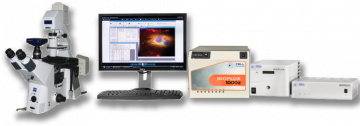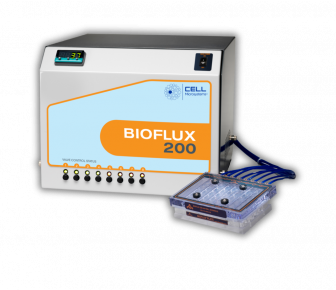Tuesday, December 19, 2017, 5:00 pm CET.
Dr. Mark Webber, Quadrum Institute Bioscience.
Biofilm formation and host-pathogen interactions are frequently studied using multiwell plates; however, these closed systems lack shear force, which is present at several sites in the host, such as the intestinal and urinary tracts. Recently, microfluidic systems that incorporate shear force and very small volumes have been developed to provide cell biology models that resemble in vivo conditions. Therefore, the objective of this study was to determine if the BioFlux 200 microfluidic system could be used to study host-pathogen interactions and biofilm formation by pathogenic bacterias. Strains of various pathotypes were selected to establish the growth conditions for the formation of biofilms in the BioFlux 200 system on abiotic (glass) or biotic (eukaryotic-cell) surfaces. We describe here a microfluidic method for high-throughput screening that could be used to identify novel factors involved in biofilm formation and host-pathogen interactions under shear force.
Register now








